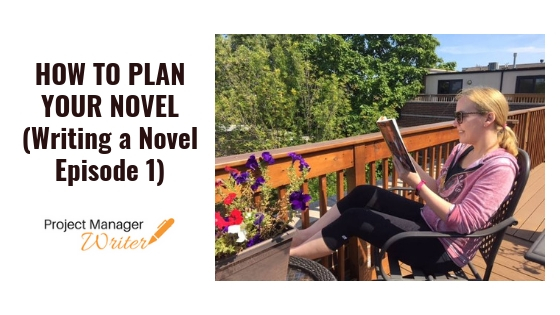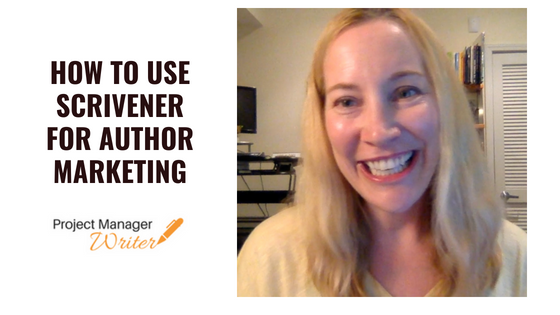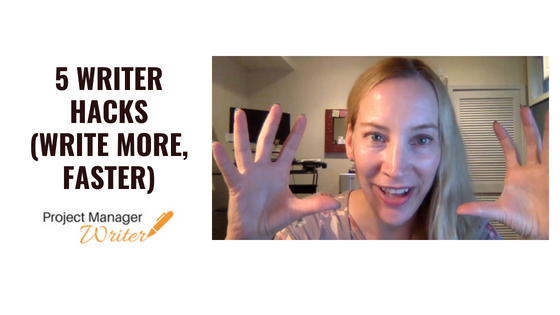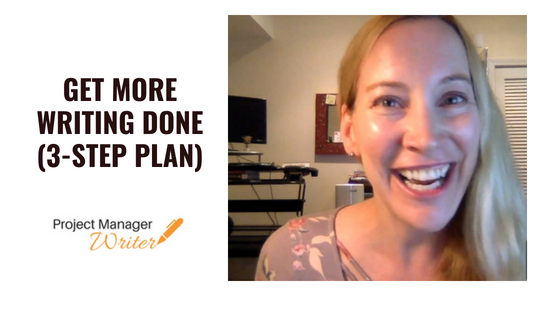Have you ever had a great idea for a novel, hammered out an outline, started writing, but halfway through, had a freak-out moment?
Maybe you thought:
I have no idea what I’m doing.
Who am I to call myself a writer?
They’re all going to laugh at me!
That about sums up my experience writing my first novel—a process that took over two years. You’d think I would have improved when writing books 2 and 3? Nope. Same old story.
I suffered from 1st draft Fear of Failure.
Fear of failure is known clinically as atychiphobia. Healthline.com says atychiphobia can be so extreme it “completely paralyzes you, making it difficult to carry on with your tasks.”
Yikes. I would get 60% through my novels, throw my hands in the air, and try not to cry. After over-engineering my plots, I’d return to the beginning and scrutinize every chapter, trying to assemble the story like a jigsaw puzzle.
I got halfway through my second novel, only to decide it didn’t work. I threw out two-thirds of the book. [As an aside, I saved it in a file in case I ever want to do something with it. Always archive, never delete!]
Those were painful lessons. I faced a crisis point. Did I want to struggle with every new novel, or could I find a better way to write?
I faced the 1st draft FOF “mountain” and climbed it. It took writing two more novels, but now I’m able to outline a full-length novel and then write the first draft within 4-6 weeks.
Here’s how I did it:
1) Become a faster writer.
For years, I had heard the productivity benefits of dictation, but every time I tried, I sputtered out and lost interest.
Also, I’m a slow typist. At my fastest, I write 1200 words per hour, and I realized that was a limiting factor.
So, I practiced dictation, with the help of a coach, and then…
2) Treat writing like a job.
Neil Gaiman says it. Mega best-selling author Ruth Ware said it on the Creative Penn podcast: Treat writing like a job.
Schedule the time in your calendar. Show up.
Every morning, I must complete my writing sprints. It’s a non-negotiable.
Those first two tips address the habit and routine of writing. Then there’s the part about fighting past the fear.
Next, I had to let go of expectations around making money, getting judged, and marketability.
3) Separate money from the creation process.
Writing a book takes work. Not only is it a huge investment of your time, but factor in the costs of cover design, editing, proofing, and marketing. If novel writing went up for venture capital, they would probably reject it.
It’s true that, occasionally, a book takes off and becomes a runaway bestseller, but that’s not likely. It will take me years to earn a steady income from novels. I accept that fact (granted; it took a while before it sunk in).
I write books to entertain others and help people escape. When I was little, books helped me get through severe shyness and social anxiety. So, now I don’t worry about how much money a book will make, I just write the damn thing.
During the creation process, I don’t worry about the money aspects. Write your book because it means something to you and because you have a message to share with the world. Worrying about money comes later (during the book marketing process).
4) Your real friends aren’t laughing.
A huge obstacle for new writers is worrying about what others will think. After 4 novels and 5 nonfiction books, I’ve (mostly) stopped caring. Friends read my books; so do my parents. They don’t have to, but they do, and I used to freak out about it.
Some people enjoy my books and others don’t. That’s the way of the world. I don’t write for my friends and family; I write for the people who love sci-fi and fantasy.
Realizing that truth has freed me to take more risks with my writing and released me from the grip of perfectionism.
Who do you write for?
5) You don’t have to fit in.
The last point I’ll touch on is marketability. I highly recommend Chris Fox’s amazing books for writers and his YouTube channel. His book Write to Market is excellent, and I think every writer should read it and apply those techniques.
However, every time I’ve tried to study the market, I get bogged down with overwhelm. And I wonder whether I’m writing for the sake of creating or whether I’m chasing after money that may not be there.
So, I made a choice to let go of extensive market research. Maybe I won’t earn as much as someone who is following a right to market philosophy, however, I’m writing the things I’m passionate about. I mix aliens with robots and mutants in the same book. Is that even a genre? I don’t know.
Moving away from the mindset that my fiction has to “fit in” somewhere has helped me get that first draft finished.
6) Words matter.
Finally, my biggest lightbulb moment: words written can be shaped into something amazing. Yes, you’ll end up vomiting out the first draft. But that’s okay. And, guess what? No one will see it but you.
Sometimes, when I’m dictating, I’ll just say “placeholder” because I forget a character’s name. Or I’ll say, “research this bit later.” When you get into a flow state, your brain is moving into a level of creative consciousness. Try not to interrupt that flow because that’s where the magic happens.
On good days, I’ll dictate 2500 words an hour, sometimes 3000. Those words are far from perfect, but I have something to work with. Words I can mold and shape into a fluid story. That’s been a huge game changer for me.
Do you have a fear of failure when you’re first drafting? What do you think is the biggest reason? Could it be money expectations, marketability, fear of judgment?
I’d love to hear what you think. Leave a comment below.







Leave A Comment